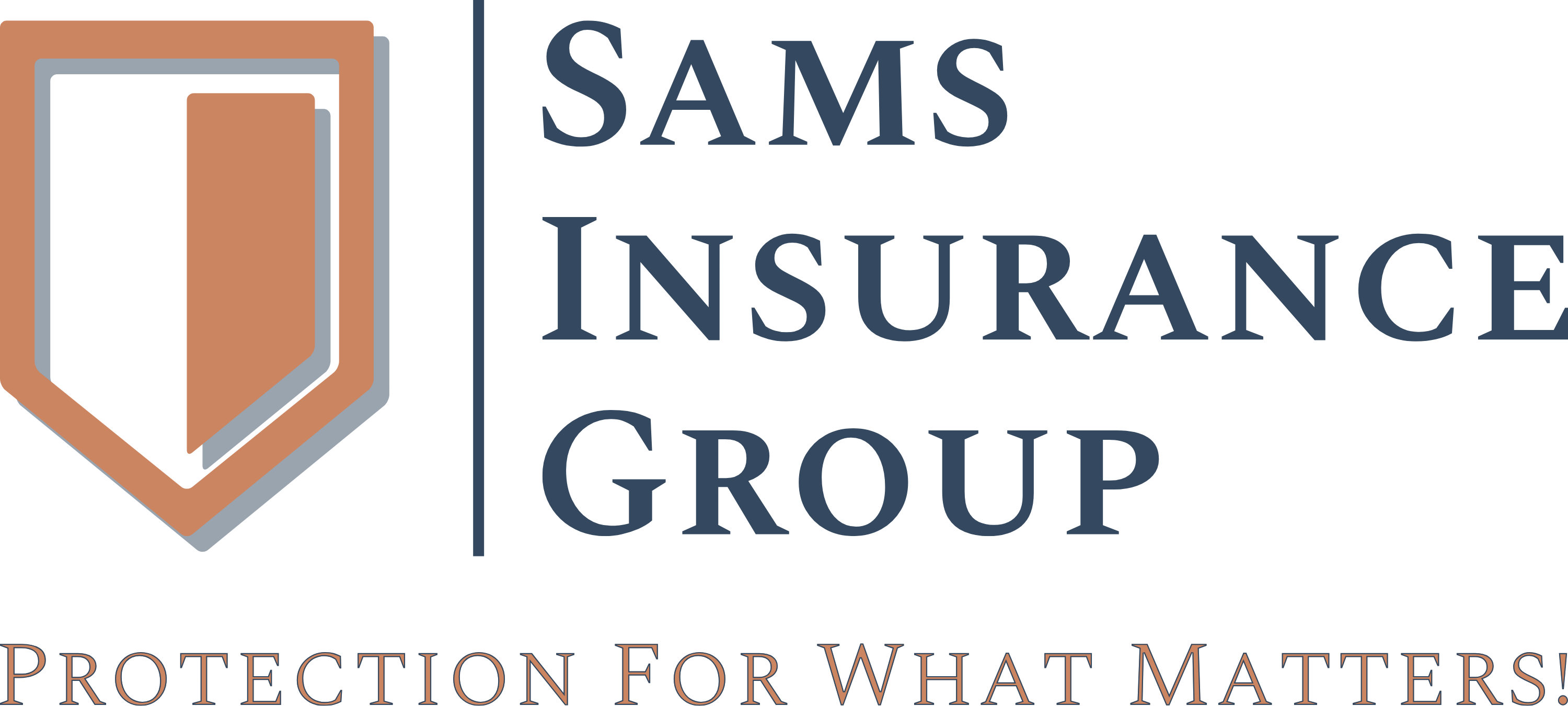
Insurance Services

Insurance & Bond Product Overview:
Click Each Product To Expand For Product Description
If you are an investor or homeowner that recently purchased a property subject to the existing mortgage, below is an overview of how to properly structure the insurance policy. Since the deed to the property has transferred to a new owner, the current insurance policy will need to be cancelled and replaced with a new policy listing the new owner (or a representative of the entity that owns the property) as the primary insured. We do not recommend keeping two separate insurance policies on the same property, as should a claim occur, there is a high possibility that both insurance companies may deny the claim by stating that the other insurer is responsible for the loss settlement. Please also note that there is no guarantee that the underlying lender will pay the new policy when it is sent in for payment out of the escrow account. There may be instances where the escrow department will refuse to pay the new insurance policy because the named borrower on the loan is not listed as the primary insured. Should this occur, please be prepared to pay the new insurance policy directly, with this payment being made outside of the underlying mortgage's escrow account.
SUB TO INSURANCE STRUCTURE:
*Primary Insured: This will be the new owner of the property. Some insurance company underwriters require that the primary insured be a natural person. If the deed has been transferred to an entity (Trust, Corp, LLC, etc), the primary insured will need to be either the trustee of the trust, or the owner of either the corporation or LLC to which the deed to the property has been transferred.
*1st Mortgagee: This will be the loan servicer on the mortgage between the previous owner and the current lender. Please make sure that the loan servicer's or lender's appropriate mortgagee clause is listed, along with the appropriate loan number associated with this mortgage. This information can be found in the previous owner's online mortgage account, or on a recent mortgage statement.
*2nd Mortgagee (if applicable): If the property is acquired subject to the existing mortgage and being sold via a wrap around owner finance transaction, the 2nd Mortgagee will be the seller/lender offering owner financing to a new buyer. A loan number will have to be created and listed related to this transaction as well.
*Additional Insured(s): The previous homeowner that is the named borrower on the underlying mortgage needs to be listed as an additional insured.
I would be more than glad to provide you with a quote for insurance coverage if the property is located in the state of Texas. Please feel free to shoot me a private message, or call me at 210-788-1034, and I'd be more than glad to assist.
Sincerely Yours In Service,
Mr. Aaron C. Sams, USAF Vet.
Investor & Licensed Insurance Agent: Texas
Phone: 210-788-1034
E: aaron@samsonestop.com
https://samsonestop.com/
Homeowners Insurance coverage protects your home and personal property. If your home is owner occupied, liability and theft coverage is included. Landlord Insurance coverage solely protects the dwelling structure of the property.
A business owner’s policy (BOP insurance) combines two important types of business insurance — general liability insurance and commercial property insurance — into one package that is usually less expensive than buying the coverage separately.
General liability insurance can help pay for medical expenses if your business is held responsible for an injury to someone who is not an employee, as well as legal costs if they sue your business. It can also help cover the costs if you or an employee accidentally damage someone’s property.
Commercial property coverage helps pay for business goods, gear and inventory and damage to structures and provides business income after a covered event.
BOP insurance has additional benefits:
- You save money by bundling two policies into one
- You get coverage that’s tailored for small businesses like yours
- You can easily manage your coverage, add additional insureds and share certificates online 24/7
General liability insurance can provide financial protection for some of the most common accidents at a business. It can help if someone other than an employee gets hurt and your business is at fault. This is called “bodily injury.” General Liability Insurance can also help pay for repair or replacement costs if you accidentally damage property that doesn’t belong to you. And if you’re accused of reputational harm (libel or slander), false advertising (advertising injury) or copyright infringement, your insurance policy can provide coverage for that, too. It’s one of the most frequently purchased types of business insurance by small business owners because of the broad protection it offers.
General liability insurance can help protect you from unexpected expenses related to many of the most common types of accidents that can affect your business and lead to lawsuits, such as:
- Injuries to people who are not your employees (bodily injury)
- Damage to another person’s property (property damage)
- Court and legal fees
- Medical payments
- Advertising harm
- Accusations of libel or slander (personal injury or reputational harm)
General liability is included in many business insurance packages because it can help cover the risks that many small business owners face every day. It’s not typically required by law, but some clients and agencies could ask you to have a certificate of insurance before they work with you.
Professional liability insurance can help protect your business if you are accused making a professional mistake or negligence. A client or customer can file a lawsuit against you if they think you did something to cause a financial loss. If you have a professional liability insurance policy, you could get financial help to defend your business or fix the mistake. Professional liability is common coverage for professional services, such as accountants, consultants and real estate professionals.
There are two core areas where professional liability can help protect a small business from unexpected costs:
Your business mistakes
You can follow all the rules, do everything right and still make a mistake — it happens to almost everyone. Professional liability insurance can help protect you from paying entirely out-of-pocket if you or your employees are accused of making a mistake that causes financial harm to another person or business.
Accusations of professional negligence
There are standards of service for every profession. Business owners are generally expected to act in the best interest of their clients. You might find yourself accused of professional negligence and forced to defend yourself if your business actions caused a financial loss for a client.
Commercial property insurance can provide a wide range of coverage for small businesses. Common items that your insurance company can protect include:
- Inventory
- Furniture
- Fixtures
- Equipment
- Business income
- Structural damage
- Broken windows
- Flooring
Your insurance coverage could provide financial help if your property is damaged by:
- Water
- Fire
- Wind
- Vandalism
- And other risks
Even if you rent a space and don’t own the building where you work, you may need insurance to help protect what’s inside and avoid a large financial loss.
How Commercial Property insurance works
After you purchase commercial property insurance, you could file a claim to get help with replacement or repair costs for damaged property after a covered event. It’s important to note that your policy document will describe specifically what property damage your insurance will cover and any exclusions — be sure to read it carefully. If you have to file a claim, you’ll work with a claims specialist who will assist you in resolving it as soon as possible.
Commercial auto insurance is essential to protect your business from unexpected expenses if you or your employees are involved in an accident. Whether you have a single work truck or a small fleet of delivery vehicles, your commercial car insurance policy can provide coverage up to your policy limit for:
- Expenses for claims related to emergency care
- Medical bills
- Property damage
- Damage to your vehicle
- Legal fees
- Gap coverage on financed and leased vehicles
Whether your vehicle is essential for your daily operations or something you only occasionally use for work, you need an auto insurance policy customized for your business. If you’re like most business owners, the separation between work and home is probably blurred. Even if you only have one car for all your transportation needs, you’re exposed to different risks when you drive for business than you are when you drive personal reasons. If you have employees that operate your cars, your commercial auto insurance policy can also cover them up to the limits of the policy.
Cyber insurance can help small businesses prevent, assess and quickly respond to many technology-based problems, including:
- Compromised IT infrastructure
- Systems failure events
- Cyber attacks
- Data breaches
- And more
Risks to your cyber security can come from many places, including your personal communications (like email) and professional networks, or vendors, partners and employees.
Prevention is key, but fast response time in the event of an incident can help mitigate damage and loss to your business.
Cyber liability insurance can help protect your business and provide:
- A suite of free cyber security tools to help monitor and protect your communication and transactions.
- 24/7 expert response to help you immediately after a cyber attack.
- Protection for physical hardware in the event of a virus or malware.
- Financial help after phishing scams, data breaches and ransomware attacks.
- Recovery or replacement funds lost due to wire fraud.
We provide bid, performance and payment bonds for all sizes and types of contractors. Surety and fidelity bonds can play a significant role in helping address risk and potential loss for a growing business. Whether it’s a surety bond to guarantee payment or a bond to guarantee work, we understand what businesses need and are responsive, flexible and focused on satisfying the unique bond requirements of our customers.
LET'S DEVELOP A RELATIONSHIP!
I would be very interested in speaking or meeting with you to discuss how I can assist you in the areas of real estate, insurance, business consulting, or government contracting support. Feel free to either send me an email at aaron@samsonestop.com, or call me at (210) 788-1034, and I would be more than glad to schedule a face to face meeting or phone conversation accordingly. I hope this helps, and I look forward to speaking with you soon!